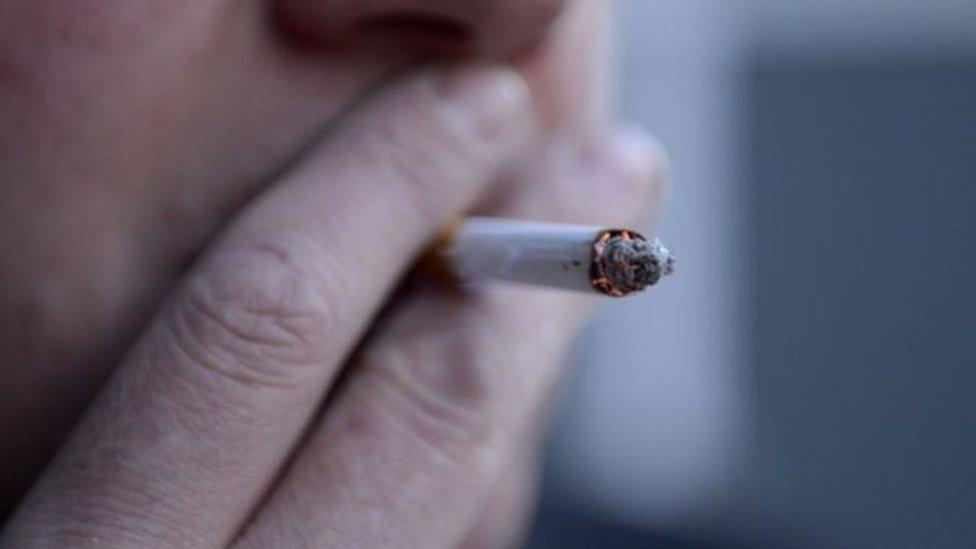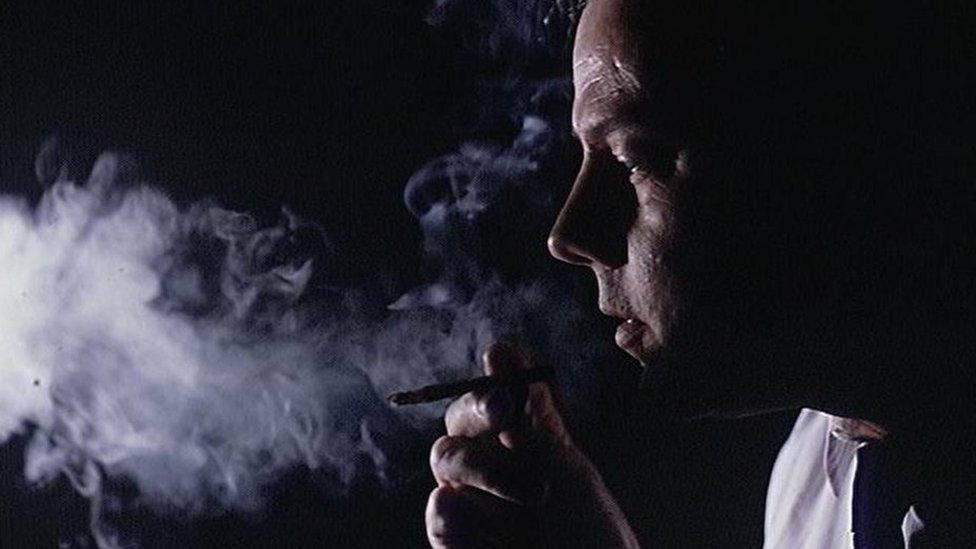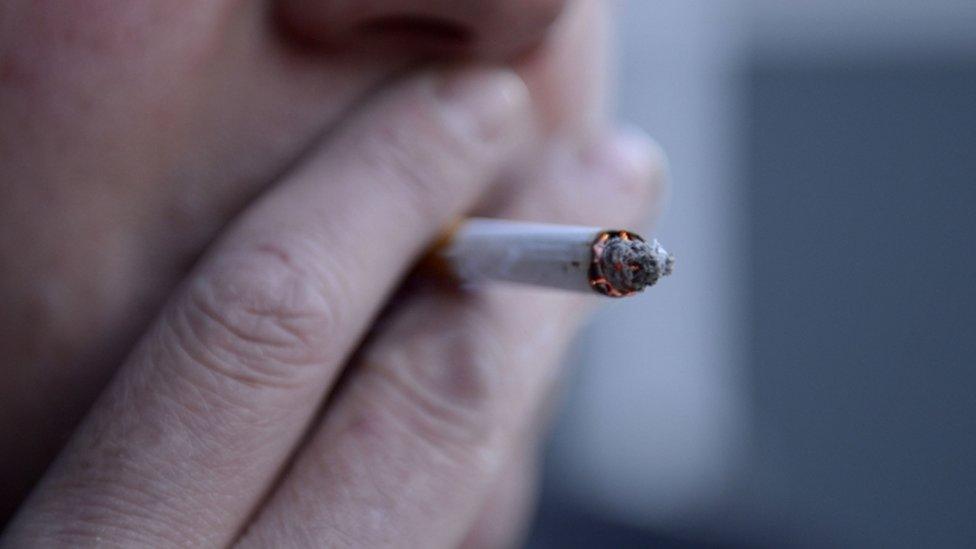Inmate loses jail smoking ban fight at Supreme Court
- Published

Paul Black's lawyers suffers from a range of health problems due to second-hand smoke
A prisoner concerned about his exposure to second-hand smoke who wants smoking in jail to be a crime has lost a legal battle at the Supreme Court.
Paul Black, an inmate at HMP Wymott in Lancashire, wanted the same protection against passive smoking as "non-smokers living in the wider community".
Five justices dismissed his case against the government following his defeat in the Court of Appeal.
The sex offender suffers from a range of serious health problems.
Black has been serving an indeterminate sentence since 2009 and his lawyers said he suffered from problems including hypertension and heart disease due to second-hand smoke.
He had been challenging the decision of the appeal judges that a legal ban on smoking in public places did not apply to public sector prisons.
The case centred on the 2006 Health Act which places restrictions on smoking in public places and workplaces, making it a criminal offence to smoke in an unauthorised place and also an offence for those in charge of the premises to turn a blind eye to smoking.

HMP Wymott in Leyland, Lancashire holds more than 1,100 prisoners including sex offenders
Black won a High Court case in 2015 that the legal ban must also be applied to state prisons and other Crown premises in England and Wales.
However, a Court of Appeal challenge by the government last year was allowed after lawyers warned a "particularly vigorous" ban could cause discipline problems and risk the safety of staff and inmates.
The Supreme Court was asked to decide whether the appeal court had reached the correct conclusion and it unanimously dismissed Black's appeal.
The court held that Parliament must have intended that the Crown should not be bound by the smoking ban, "since it would otherwise have made express provision for it in the act".
The Prison Service said it was rolling out smoke-free prisons gradually "in a safe and secure way" that would "reduce the risk to staff and prisoners of exposure to second-hand smoke".
- Published31 October 2017

- Published8 March 2016
